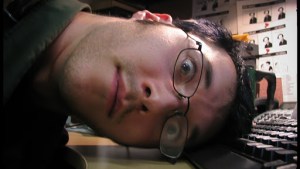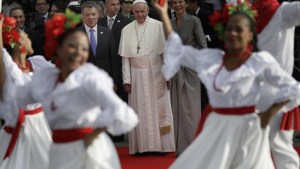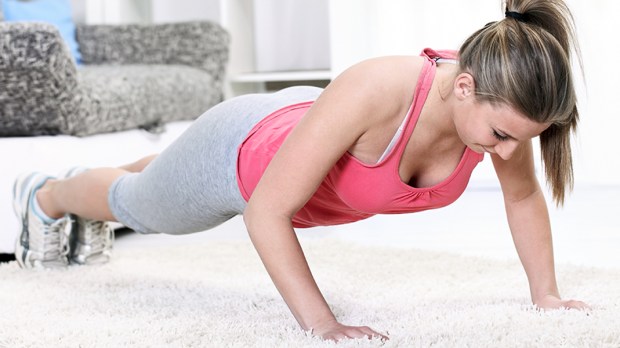A few months ago, I signed up for a high-intensity interval training (HIIT) class. For those of you who aren’t familiar with this form of exercise, it consists of killer 30-minute sessions, during which you repeat a series of very intense exercises. It’s a half hour that’s very difficult to begin and very satisfying to finish—like almost everything that requires effort in this life.
The great difficulty lies in doing the exercises correctly. To get them right, I usually have to ask where it’s supposed to hurt. If you don’t do it correctly—flexing the right muscle—or if you haven’t warmed up properly, not only does it not bring you any benefits, but also it can cause injury.
In life, I believe we often don’t realize what the main muscle is that we should be using—the first one we have to warm up and flex, the one that will always give us strength for the daily HIIT class of life, full of repetitions of high intensity exercises—the muscle of faith.
To explain myself better, let me summarize a story that always fascinated me, from the book “Un pan para cada día” (“Daily Bread”) by Agustín Filgueiras. It is the story of a father who challenges his son to move an obstacle that’s beyond his strength, and tells him to do everything he can to achieve it. After a long while, during which the boy tries to move it with all the resources that come to his mind, without achieving anything, he tells his father that it’s an impossible mission. His father then replies, “No, you didn’t do everything in your power, because you could have asked me for help.”
Asking for help, asking God to lend us strength, is really a big step for each of us because it means recognizing that we can’t achieve our goals on our own, by force of muscle, of commitment, or of will. It may seem that, by flexing these “muscles,” we’ll achieve our goals, but it’s a fragile illusion. Without faith, without asking for help, we’ll be at risk of collapse from exhaustion; of being overwhelmed by our responsibilities; of going to bed dissatisfied with the day’s results, with our goals or with ourselves; of being drowned in the monotony of routine. On top of that, we’ll be exhausted and unable to recover from the defeats, big or small, that afflict all lives from time to time.
Many times I have been asked, “How do you get everything done with 12 children?” If I know that the person who’s asking me has no faith, how do I tell them, without sounding irresponsible, that I don’t get it all done; that what I do best is to ask for help?
It’s this help that gives me the strength to read an interesting educational book, or to attentively watch a batch cooking tutorial that helps me have more free time to go have a snack with one of my children. Not to mention that this great strength, obtained through great spoonfuls of humility, eases all human relationships, brings people closer together, forgives mistakes, and increases the number of people who benefit from the goals we achieve.

Read more:
How to Fit Faith into Your Busy Work and Family Life
The opposite tends to happen with people who believe that they are the only ones responsible for their success, who think that it’s only the fruit of their own sacrifices, efforts and capacities. Very often, these people treat with a certain amount of disdain those who have not achieved goals they would consider easy.
Another benefit of borrowed strength is that it teaches one to stand up again and again. In the book The Librarian of Auschwitz, by Antonio Iturbe, I found a beautiful quotation:
The strongest athlete is not the one who reaches the goal first. That’s the fastest. The strongest is the one who gets up every time he falls. When that runner reaches the finish line, even if he comes in last, he is a winner.
Knowing this is always a comfort to those of us who, like me, fall after every stride. Perhaps we make a bad omelet, commit the worst spelling mistakes, or have the unfortunate ability to annoy or upset loved ones without meaning to.
We need to trust that, whatever happens, everything is for the best (“omnia in bonum”). We need to believe that, when we ask God for help, He will not look the other way. He told us clearly: “Ask and it will be given to you.”We only have to persevere. No matter how bad things get, no matter how much we screw up, we have to know that there will be a happy ending that will give us the strength to turn another page and get up the next day.
Do we start exercising the muscle of faith before we start “doing the burpees” of our difficulties or of our routines? Do we warm up, or do we start—without that preparation, without that borrowed strength—to run on the treadmill or to take steps on the elliptical of our human relationships? Why are we waiting to ask for help? Didn’t He make it clear to Martha, and to you and me also at the same time, that “There is need of only one thing” (Luke 10:42)?
Only this way, after that warm-up, will the exercises of our job, our children, our sit-ups, or our dealings with our mother-in-law, come out better than expected and without injuries. Do we strengthen our most important muscle every day?
P.S. In the HIIT class, we end up stretching a large part of the body; there’s nothing better for stretching the muscle of faith than giving thanks.

Read more:
Pope Francis’ advice to the married: Ask God for help

